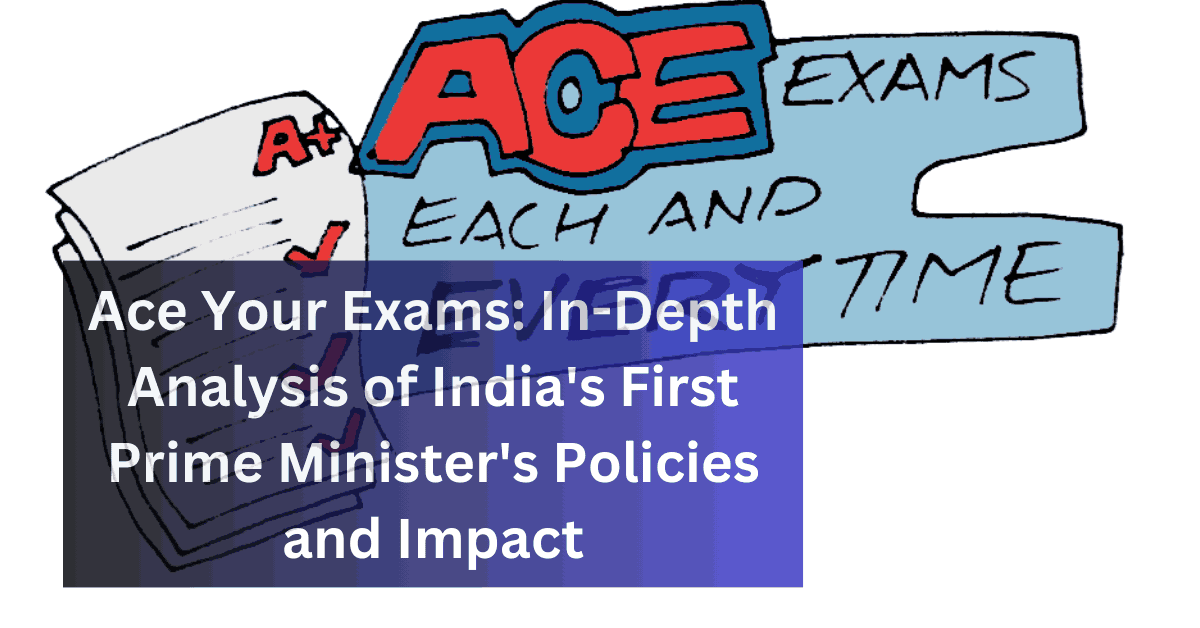The role of a nation’s leader in shaping its future cannot be understated. When it comes to preparing for exams, especially in subjects like history and political science, a thorough grasp of such influential figures is paramount.
This article delves into the profound influence exerted by the first PM of India, focusing on his policies and their lasting impact. His tenure marked a pivotal transition from colonial rule to the sovereignty of the subcontinent, setting the stage for the country’s path as an independent nation.
Table of Contents
Early Life and Path to Leadership
Born on November 14, 1889, in Allahabad, the individual who would become the foremost leader of the newly independent nation was nurtured in an atmosphere of political awareness.
His early years were marked by an exposure to the freedom struggle, deeply influencing his political ideology. His education, both within the subcontinent and abroad, played a crucial role in shaping his worldviews.
This early life set the stage for his ascent to leadership, blending traditional values of the subcontinent with modern political thought. His foreign education, especially in law, provided him with a global perspective, which later influenced his diplomatic strategies.
Vision for a New Nation
After the subcontinent achieved independence in 1947, he was tasked with the herculean challenge of uniting a diverse land and laying the foundation for its future. His vision was clear: to create a secular, democratic, and modern state.
This vision was revolutionary, seeking to transcend the religious and cultural divisions prevalent in the newly independent nation. His policies focused on industrialisation, education, and social reform.
He believed that a strong industrial base was essential for economic independence, while education was the cornerstone of a progressive society.
His emphasis on education also included the promotion of higher education and scientific research, fostering a generation of educated and skilled individuals.
Foreign Policy and Non-Alignment
In the international arena, he played a crucial role in establishing the foreign policy of the subcontinent. He pioneered the Non-Aligned Movement, asserting that his nation would not be tethered to any global superpower blocs.
This approach was a bold statement in the Cold War era, asserting the sovereignty of the nation in international politics. This decision was pivotal in establishing it as a sovereign state with its own distinct voice in global affairs.
His foreign policy was also marked by efforts to foster good relations with neighbouring countries and support anti-colonial movements worldwide.
Landmark Reforms and Their Impact
One of his significant contributions was land reform. The abolition of the Zamindari system aimed to redistribute land to the landless, a move intended to rectify historical injustices and reduce rural poverty.
This policy was crucial in breaking the feudal structures that had long oppressed rural populations. Additionally, his focus on scientific and technological advancement laid the groundwork for the future progress of the nation in these fields.
Legacy and Lessons for Exam Success
In understanding the role of the first prime minister in shaping the nation, students gain valuable insight into the complexities of nation-building. His policies and their outcomes offer a rich tapestry of historical, political, and social lessons, crucial for those preparing for competitive exams.
His tenure is not just a study of political leadership but also an exploration of the challenges in post-colonial state-building.
In conclusion,
the legacy of the first PM of India is a testament to the enduring power of visionary leadership. His policies and their impact continue to resonate in the subcontinent, offering a profound subject of study for students.
As you prepare for your exams, remember a deep dive into the life and works of this remarkable leader can not only enhance your knowledge but also provide invaluable insights for academic success.
His approach to governance, international relations, and socio-economic reforms serve as a blueprint for understanding the nation’s modern political and historical scenario.
- Are Private Keys Important in Crypto Wallets?
- Get a Free Consultation Today! Polonez America Helps You Plan Your Perfect Shipment
- Ad Exchange Platforms: The Backbone of Modern Digital Advertising
- The Power of Quiz Marketing: How to Engage, Convert, and Delight Your Audience
- att my results
